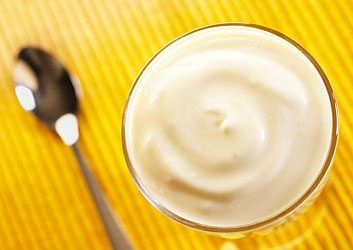
Prevent colds and flu this winter
Researchers at Mount Sinai School of Medicine in New York have discovered why we’re more susceptible to flu viruses over the frigid months. The microscopic organisms live longer in cold and dry conditions, giving them a better shot at being passed around in tiny drops of water in the air. And with more than 200 viruses causing the common cold, we’re all likely to run into at least a few of them this coming winter.
"A few key prevention strategies will go a long way," says Dr. Pierre Plourde, medical officer of health with the Winnipeg Regional Health Authority. Recent research shows that some of the most promising ways to ensure a healthy immune system aren’t the old standbys. Here’s how to survive the season.

Prevent colds and flu this winter
Researchers at Mount Sinai School of Medicine in New York have discovered why we’re more susceptible to flu viruses over the frigid months. The microscopic organisms live longer in cold and dry conditions, giving them a better shot at being passed around in tiny drops of water in the air. And with more than 200 viruses causing the common cold, we’re all likely to run into at least a few of them this coming winter.
"A few key prevention strategies will go a long way," says Dr. Pierre Plourde, medical officer of health with the Winnipeg Regional Health Authority. Recent research shows that some of the most promising ways to ensure a healthy immune system aren’t the old standbys. Here’s how to survive the season.

1. Think positively
A positive outlook may mean the difference between catching a cold or not. “Happier people are less likely to develop colds when exposed to cold viruses,” says Sheldon Cohen, a professor of psychology at Carnegie Mellon University. In his research, people who described themselves as less happy, lively and calm were about three times more likely to get sick as those who rated themselves higher in those categories. People with high positive emotion scores produce just enough cytokine (a protein) to help recruit other immune cells to fight off infections, Cohen explains.

2. Exercise regularly
Taking a pass on exercise may increase your risk of
catching a cold, according to a recent study in the American
Journal of Medicine. Scientists at Fred Hutchinson Cancer Research
Center in Seattle compared the incidence of colds in 115 women, some of whom
worked out five days a week for 45 minutes, others who attended once-weekly
45-minute stretching sessions. The “stretchers” had nearly four times as many
colds as the “exercisers” over a one-year period. “We believe there’s a
temporary increase in immune-fighting cells with each episode of exercise,” says
Cornelia Ulrich, an associate member at the Fred Hutchinson Cancer Research
Center and the study’s senior author.

3. Wash your hands
“Handwashing is probably the most revolutionary
public health measure—right up there with immunization—for stopping the
spread
of infection,” says Dr. Pierre Plourde, Medical Officer of Health with
the Winnipeg Regional Health Authority. After all, you only need to
make contact with a
cold or flu virus and then touch your eyes, nose or mouth to get
infected. A
2008 review in the BMJ (British Medical Journal) noted that handwashing is
far more effective at reducing risk than antiviral drugs. But do it right: Wash for 20 seconds
using soap and warm water.
Experts recommend frequent handwashing throughout the
day—before and after eating, after using the washroom and after coughing,
sneezing or touching surfaces that may have been touched by sick people. And
stay away from antibacterial soaps, hand washes and gels—they make it easier
for bacteria to build resistance. Use alcohol gels instead, advises Plourde.

4. Snack on yogurt
“It’s too early to say for sure that they prevent colds and flu, but probiotics may promote a healthier immune system,” says Dr. Eric Gershwin, chief of rheumatology, allergy and clinical immunology at the University of California at Davis. Probiotics are supplements of live microorganisms added to foods such as yogurt, and are also available in capsule form.
In a study published in the British Journal of Sports Medicine, athletes who took a probiotic supplement had half as many days with respiratory symptoms as those in the placebo group. To benefit, a person should consume between one and 10 billion colony-forming units (CFUs) of active probiotics per day, adds Carolanne Nelson, a professor in the department of family and nutritional sciences at the University of Prince Edward Island. Look for grocery products that state how many CFUs they contain.

5. Eat your broccoli
Research indicates that brightly coloured vegetables and fruits boost immunity better than most supplements. Eating at least eight servings a day helps keep the immune system in top form, and prevents it from overreacting—the cause of many immune-related diseases. (Visit our recipes section for hundreds of healthy recipes to search or browse through.)

6. Give herbs and algae a try
The herb ginseng has been proven to help prevent
colds when taken as soon as symptoms develop. As part of a large-scale project
supported by the Ontario Ministry of Research and Innovation, researchers at
the University of Western Ontario are conducting a study to determine what type
of ginseng works, and how much.
Spirulina, a blue-green algae available at health food
stores, is also promising. In a May 2008 study, German researchers found that
spirulina preparations containing zinc and powdered acerola (a vitamin C-rich
tropical fruit) have high anti-inflammatory and antioxidant potential. Further
testing is required to determine whether long-term use of spirulina
preparations strengthens immune defence and reduces cold and flu risk. (Consult
with a doctor or a trained practitioner before trying any dietary supplements.)

7. Boost your vitamin D
A Finnish study found that those with low vitamin D status were one and a half times more likely to get a respiratory infection than those in the control group. Likewise, researchers at Winthrop-University Hospital in New York who were investigating the effects of vitamin D supplementation (up to 2,000 IU daily) on bone mineral density in African-American women determined that participants in the non-placebo group reported three times fewer cold and flu symptoms than those who were taking the placebo. (Health Canada recommends 200 IU daily for adults under age 50, and 400 IU for those over 50.)

8. Get vitamin B12 from foods
You may have heard that getting a vitamin B12 injection
will boost your immunity, but no studies have been conducted to prove that it
can protect you from the cold or flu. “Most people who eat healthily are
getting enough vitamin B,” says Gershwin. “A vitamin B12 shot for
otherwise healthy people is a waste of money.”
As for sugar-free vitamin waters, while they are better than
sugary sodas, they contain only trace amounts of vitamins—nothing that will
prevent a cold or boost short-term immunity, says Aileen Burford-Mason, an
immunologist and the president of the Holistic Health Research Foundation of
Canada.

9. Get vaccinated
Though the annual flu shot is only about 80 percent effective, it’s still one of the best defences we’ve got, says Dr. Pierre Plourde, medical officer of health with the Winnipeg Regional Health Authority. Some fear that because the flu vaccine contains several influenza strains in one shot, it can actually tax the immune system—but don’t worry. “Your immune system has a phenomenal capacity,” he says. Up to eight million Canadians are infected by the flu every year, resulting in an average of 20,000 hospitalizations and 4,000 deaths (often the elderly and very young). The shot’s benefits, says Plourde, far outweigh the risks.
